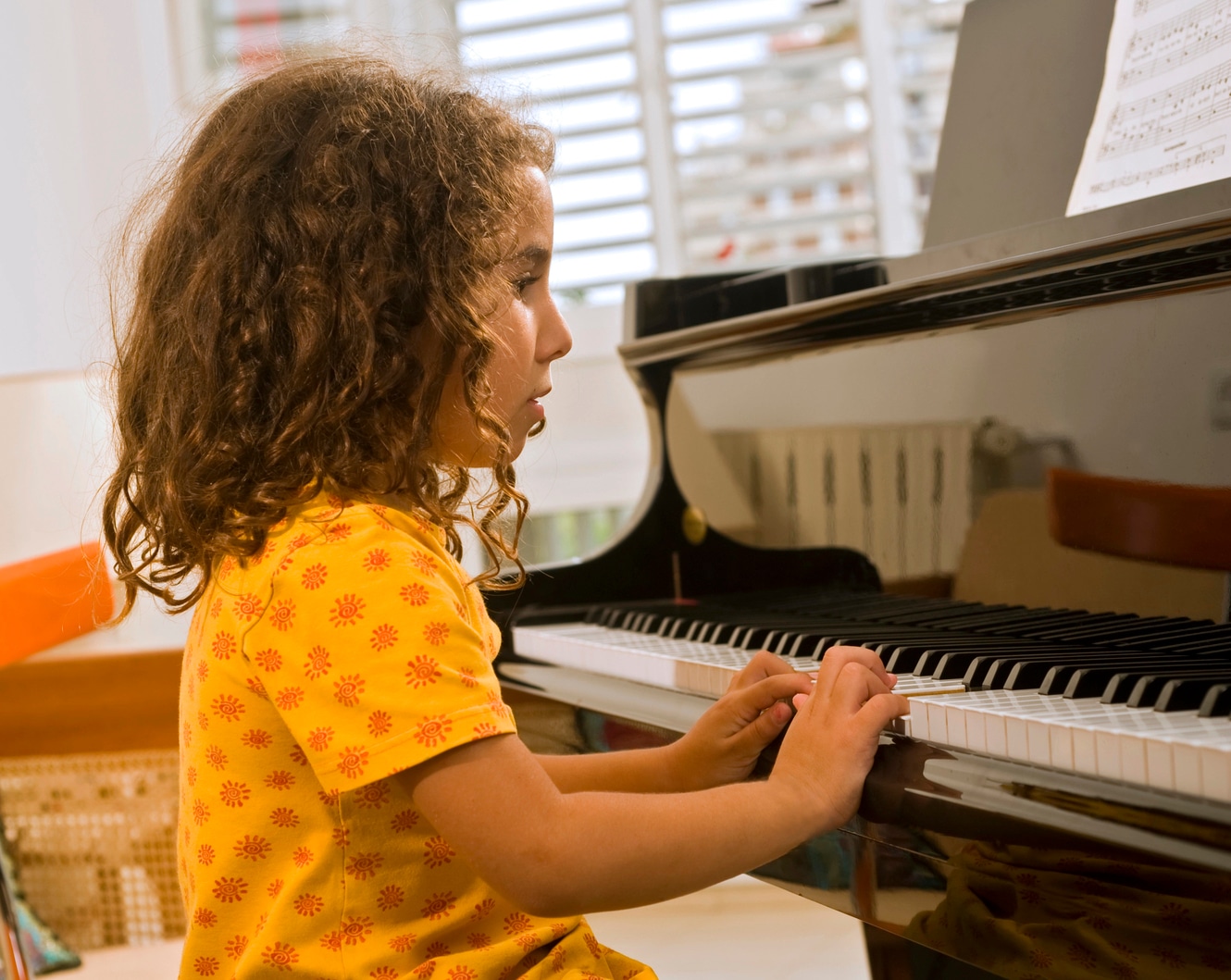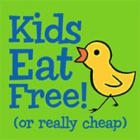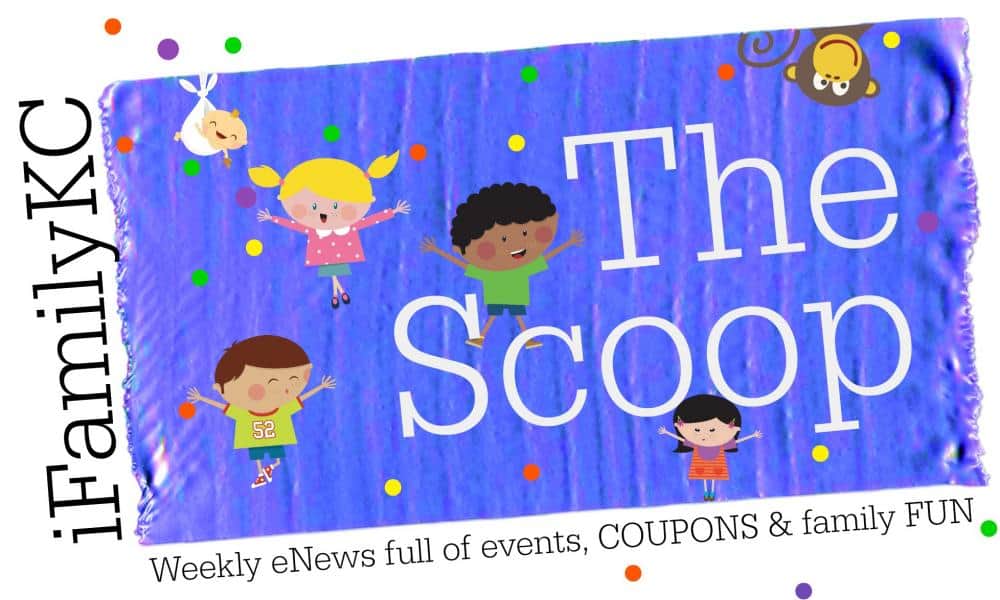11 Benefits of Playing Piano for Kids (& When to Start)
Have you been wondering “should my child learn to play piano”? If the answer is yes, and you’re considering learning to play the piano or having your child try classes, it’s good to know the benefits of playing piano. There are many positive habits and skills that children (& adults) can develop.
Why Should Children Learn Piano?
Children will learn much more than just music in playing the piano.
They will achieve valuable skills such as self-discipline, mental concentration, a sense of timing, the ability to hold up under stress, memory skills and many others that will benefit them throughout their life.
Research shows that music helps build children’s self-confidence, enhances complex reasoning and focuses listening skills. Early music instruction produces cognitive benefits in the area of spatial-temporal reasoning.
Early childhood music programs, such as Kindermusik, focus on fostering a love of music, rhythm, and self-expression. This holistic focus can help children grow in many areas.
Early musical experiences can help children develop their singing voice, build steady beat competency, develop listening skills, and give expression to their feelings. These valuable skills will benefit children when they begin formal music lessons.
Benefits of Playing Piano
From sports to dance and theater, each of these activities offers valuable skills and life lessons stemming from the good intentions of coaches and teachers. As a piano teacher, I am passionate not only because it’s beautiful but also because I believe music helps develop the whole child.
1. Piano Develops Self-Esteem
I’ve taught several students throughout the years and have noticed a dramatic increase in the self-esteem of these children throughout the course of their music education. Many students, primarily younger children, tend to be shy and introverted during their first few lessons.
As novice pianists, new students tend to lack confidence in the beginning. But even after just a few weeks, I start to notice a distinct change in each child!
They become excited about music and come to life. It’s truly magical to watch the transformation in each of these students and it’s an honor to witness their confidence grow through music.
One of my favorite memories from teaching is a young student who enrolled in lessons. Within his first year of learning how to tickle those ivory keys, he decided to play in his school’s talent show. It’s that kind of enthusiasm and drive that thrills me as a music educator.
Do your children seem hesitant and timid? Want to improve that emotion? Confidence grows as you practice the piano!
Doing piano, in particular, helps get over shyness. This is similar to public speaking, except that you don’t need to look at your audience or talk loudly.
This is how it generally goes…
Your confidence rises as you play your first tune.
Your confidence increases as you move from playing with one hand to two hands.
Your confidence increases as you progress from one degree of difficulty to another. (The initial stages are simple!)
Your confidence then increases when you perform in front of an audience.
There are no boundaries. As you advance in skill, the door to the next level opens. Your self-assurance grows with each stride.
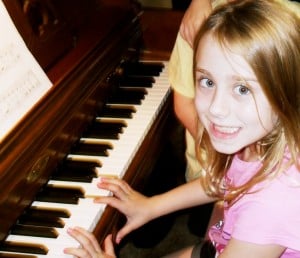
2. Piano Helps Promote Education
One of the most incredible things about a child’s growing self-esteem is the shift these students tend to have in their education. As students become more confident in their musical abilities, that same sense of self tends to translate into a better, more positive experience at school.
There seems to be a correlation between learning life skills, such as playing an instrument, and better performance in the classroom. Encouraging our children to take on a new skill is an incredible gift that we can offer to them in their childhood.
3. Prepares Students for School Band
Piano teaches some of the key concepts that students will need to know.
No matter what instrument they end up playing, children will still see developmental benefits. For example, Lori’s School of Music teaches students rhythm, how to read music, how to write music, ear training and theory. This approach leads their piano students that try out for 6th Grade Band to win in every district – Blue Springs, Lee’s Summit, and Independence.
It’s a great honor and opportunity for students to progress with their musical abilities, as well as their personal growth. Learning to play the piano provides a great opportunity for a child’s growth and development. Students that start lessons at age 5 are better able to grasp concepts and tend to learn more quickly than older children. Every year, Lori’s School of Music takes its students to compete at the Mid-American Music Association to further their skills even more.
Give your child the opportunity to develop their musical talent. Music benefits them in more ways than you can think!
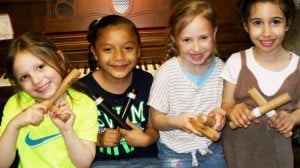
4. Children Perform Better in School
Studies have shown that young children who have developed rhythm skills perform better academically in their early school years. Children who take music lessons also have better verbal memory skills than others and may find it easier to learn in school.
During lessons, children are also practicing to focus and learning new things. They are getting ready for the structure of schooling overall. Children who play the piano also have higher overall test scores!
5. Relieves Stress
There are many studies that show those who play the piano have less anxiety and depression, as well as better overall mental health. The cathartic nature of playing the piano allows children to relieve stress and be in a calm state. It can also increase positivity.
Playing piano pushes the student past the music they “feel” like playing to broaden their horizon. It also teaches you how to appreciate fresh, uplifting music.
The National Library of Medicine even released an article demonstrating how relaxing piano playing is..
6. Improve Physical Health
In addition to the benefits mentioned in number 5, playing the piano also increases hand-eye coordination and dexterity. This can benefit children in many aspects of their lives. Learning to play the piano also uses fine motor skills, so these continue to improve as children (& adults) practice playing the piano.
It’s like bringing your fingers to the gym when you play the piano. Regular practice will undoubtedly cause your fingers and hands to get stronger. This can help with many aspects of your child’s life!
Furthermore, finger speed will quicken. However, that’s not the biggest benefit…
Increased dexterity will be good for your fingertips.
After practice, your fingers will also get more adept at using the keyboard. This will lead to better control while playing the piano and living life.
If your child struggles with hand-eye coordination, piano lessons could be a great outlet for them!
7. Learn from Critiques
Piano Enhances Ability to Take Criticism
You prepare for your classes each week as a student. You then perform what you have been practicing for your teacher.
While learning a new instrument, children will naturally receive positive praise, as well as constructive criticism. A competent instructor will commend you for a job well done while simultaneously providing constructive critique.
In every aspect of our lives, we receive constructive criticism, so this is a great skill to practice. In many cases, music can challenge children who otherwise excel in academics, providing them a new avenue to grow.
This helps children to prepare for feedback in the future and learn to take it in a positive way. Children will use this skill at work, school and in their personal relationships throughout life. It will also help them be more reflective of themselves.
Learning to accept frequent, weekly criticism from teachers will benefit your kids in various spheres of life, such as intimate relationships, academic classes, and professional settings.
8. Improve Split Concentration
Playing the piano uses both your mental concentration and physical concentration. While it might be hard at first, split concentration becomes easier and easier. Over time, it becomes second nature for students. This will help in many areas of their life down the line.
9. Increase Brain Speed & Processing Capability
Your nerves go through a process called myelination throughout childhood and adolescence. Thus, your nerves act as additional layers of insulation for the brain. These layers facilitate speedier signal transmission throughout your neurological system. (Your brain is a part of your nervous system.)
Messages to and from the brain can be transmitted as quickly as a car!
This procedure is connected to typical childhood and teenage growth, according to medical authorities. However, current research indicates that adult activities can speed up this process.
There was one research study showing piano playing is connected to this process, which leads many to believe playing the piano can improve your brain’s capacity and computational power.
10. Piano practice facilitates multitasking
When someone is playing the piano, their hands move independently, fingers hit many keys simultaneously, eyes scan the music as they play the piano, and feet press the pedals. That definitely sounds like multi-tasking to us!
Being able to successfully navigate situations where there is a lot going on can help children become comfortable with more stressful, muti-faceted environments.
These kinds of multitasking abilities also apply to actual circumstances. These abilities allow you to focus more intently at work and school without having to stop anything else you’re doing.
11. Improve Listening
It can be difficult for some children to learn to listen well.
You should explore your child learning to play the piano if they find it difficult to listen and/or sit still. If they’re speaking excessively and listening insufficiently, these can be signs to watch out for.
There are signs that piano lessons can improve their listening skills. They’ll become more adept at listening and deciphering in many areas of their life.
When Should Children Begin Piano Lessons?
Children should begin piano lessons around the ages of 7 or 8 years old. This is when children typically begin piano lessons, but kids can start at a much earlier age. If your children are able to focus, piano teachers recommend beginning as earlier as possible.
The younger students start learning the better. Students that start lessons at age 5 are better able to grasp concepts and tend to learn more quickly than older children.
Children 7-8 are usually ready to sit still and concentrate and their hands are big enough to reach the keys. By age 8, children usually have developed the ability to do abstract reasoning which is needed for staff note reading. If your children are naturally focused kiddos, you can always start younger.
Where to Take Piano Lessons for Kids?
Lori St. Clair, from Lori’s School of Music offers piano lessons based out of Independence. Lori offers both classes and private lessons for students who wish to learn how to play the piano.
Lessons are super affordable for families – especially if you have more than one child.
A huge and heartfelt thanks to Lori for sharing her expertise on why music is such an essential part of helping our children grow!
If you’re interested in helping your little one learn how to play, Lori’s School of Music is now enrolling for summer classes and private lessons. Call Lori anytime at (816) 478-4838 and be sure to let her know that iFamilyKC sent you!
If you are looking for more musical experiences, Bach to Rock in Leawood is a music lovers and future musician’s dream. They also offer classes, camps, and group lessons.
Give your child the gift that lasts a lifetime…..Music!
Be sure to sign up for our email SCOOP so you don’t miss a thing!
Check out our Things to Do with Kids in KC
From our family to yours, iFamilyKC


